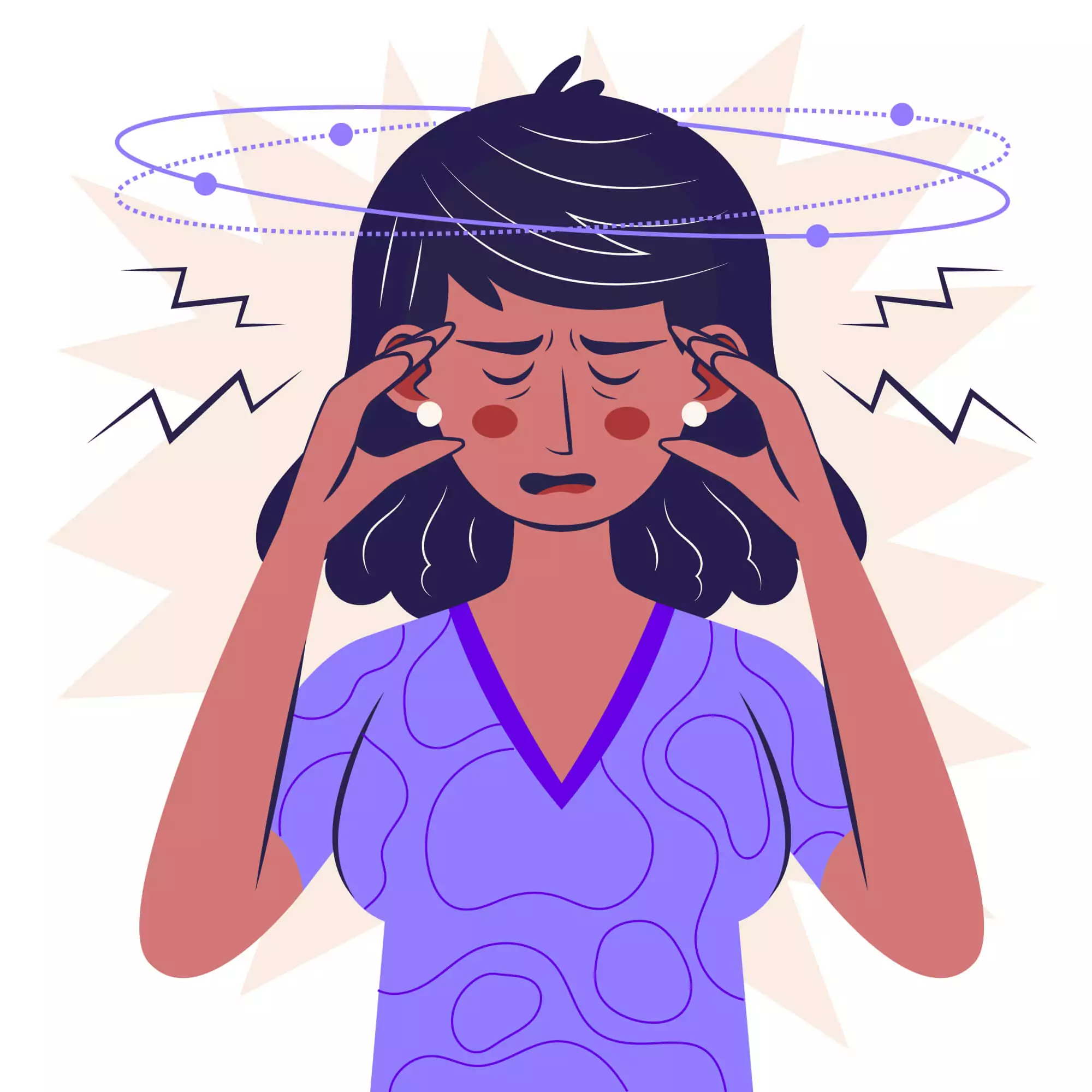Stress on weight loss
Stress on weight loss: How stress affects your weight goals & health.. Discover how stress on weight loss can impact your health & weight goals. Learn tips to manage stress on weight loss for better results!

What is Stress and how to glow natural wellness?
Stress is a physical & emotional response that occurs when we face challenges or pressures in our daily lives. It can arise from various situations, such as work deadlines, relationship issues, or financial struggles. While a certain level of stress can motivate individuals to perform better & achieve their goals, chronic stress can lead to serious health issues. Understanding how stress manifests in our bodies is crucial for identifying its impact on our weight goals & overall health. High levels of stress can trigger the release of cortisol, a hormone that affects appetite & metabolism. This complex interplay can lead to weight gain or difficulty in losing weight, which is particularly concerning for those trying to maintain a healthy lifestyle.
How Stress Affects Your Weight Loss Goals
When dealing with stress on weight loss, many people experience an increase in appetite, particularly cravings for high-calorie comfort foods. This phenomenon, known as stress-eating, occurs because the body often craves quick sources of energy when it’s under duress. Foods high in sugar & fat can temporarily alleviate stress by releasing feel-good hormones, but the long-term repercussions can sabotage weight loss goals. Those focused on dropping pounds might find themselves in a vicious cycle: stress leads to unhealthy eating, which, in turn, can cause further stress due to weight gain. It’s essential to recognize this pattern to address both the mental & physical aspects of weight management.
The Role of Cortisol in Weight Management
Cortisol is a hormone that plays a pivotal role in the body’s response to stress. When a person is under stress, cortisol levels increase, prompting the body to store energy, primarily in the form of body fat, particularly around the abdomen. This hormonal imbalance intensifies cravings for unhealthy foods, which further complicates weight loss efforts. Conversely, elevated cortisol can also suppress the digestion of food & interfere with hormonal signals that tell the body to stop eating. This dual effect creates a challenging scenario for those striving to lose weight. For anyone struggling with stress on weight loss, managing cortisol levels can be an essential aspect of achieving their weight loss goals.
Emotional Eating: A Common Reaction to Stress
Emotional eating is another significant factor influenced by stress on weight loss. Many individuals turn to food as a source of comfort during stressful times. This behavior is often subconscious, & people may not even realize they are eating for emotional reasons rather than hunger. This can lead to consistent overeating, particularly of unhealthy snacks. Keeping track of one’s feelings in relation to eating can help recognize patterns that may jeopardize weight goals. It is crucial to implement healthier coping mechanisms, such as exercise or meditation, to replace food as a source of comfort. Recognizing triggers that lead to emotional eating can empower individuals to make more conscious choices & stay aligned with their weight loss objectives.
Building a Connection Between Stress & Physical Activity
Physical activity is one of the most effective stress relievers. Engaging in regular exercise can help counteract the negative effects of stress on weight loss. When the body is active, endorphins, natural mood lifters, are released, helping to alleviate feelings of stress & anxiety. Establishing a consistent exercise routine not only aids in burning calories but also promotes mental clarity & emotional well-being. Activities that require focus, such as yoga or martial arts, can also help distract from stressors & foster a sense of accomplishment. Incorporating physical activity into daily life can have a profound positive effect on both mental health & physical health, emphasizing the need for a balanced approach to weight management.
Identifying Positive Coping Mechanisms
Finding positive ways to cope with stress is essential for maintaining weight loss. Instead of turning to food, individuals should explore alternative strategies. This could include activities such as taking a walk in nature, practicing mindfulness, or engaging in a hobby. A few effective coping mechanisms include:
- Meditation & deep breathing exercises
- Journaling to track emotions & food intake
- Spending time with loved ones for support
- Participating in relaxation techniques such as yoga
By proactively addressing stress through these healthier outlets, individuals can help mitigate the stress on weight loss that negatively impacts their health & well-being. Making time for self-care activities is essential for emotional resilience & achieving weight goals.
Nutrition Tips for Stress Management
When feeling stressed, diet plays a crucial role in how the body reacts physically. The temptation to indulge in sugary & high-fat foods can significantly influence appetite & health. To combat this tendency, focusing on a balanced diet filled with nutrient-rich foods can help stabilize mood & improve overall health. Foods that are high in antioxidants, omega-3 fatty acids, & fiber can support brain function & improve the body’s response to stress. Incorporate these foods into your diet:
| Food Type | Benefits |
|---|---|
| Leafy Greens | Rich in vitamins & minerals that reduce stress |
| Fatty Fish | High in omega-3s that help regulate mood |
| Nuts & Seeds | Provide essential fatty acids & help manage cortisol |
| Whole Grains | Stabilize blood sugar levels to combat mood swings |
Choosing whole, unprocessed foods over refined options can be a powerful strategy against the adverse effects of stress on weight management. Planning meals & integrating these types of food can help shift focus toward nutrition, supporting both mental & physical health.
The Importance of Sleep in Stress Management
Sufficient sleep is vital for reducing stress & managing weight. Inadequate sleep can increase cortisol levels, leading to cravings for unhealthy foods & lower motivation for exercise. When well-rested, individuals are more likely to make better decisions regarding diet & physical activity. Creating a bedtime routine that promotes restorative sleep can thus have a significant impact on stress-related weight issues. Consider establishing a consistent sleep schedule, reducing screen time before bed, & creating a calming environment. By prioritizing sleep, not only can one manage stress levels more effectively, but it can also aid in reaching weight loss goals.
Cognitive Behavioral Techniques to Address Stress Eating
Employing cognitive-behavioral techniques can be an effective means to combat stress eating & manage stress on weight loss. This approach involves identifying negative thought patterns & challenging them. Individuals can replace harmful thoughts with more constructive beliefs that promote healthier decision-making. One technique, mindfulness, encourages individuals to focus on their eating habits, making them more aware of the reasons behind their cravings. Cognitive restructuring can help reframe thoughts about food & weight, making it easier to resist the urge to eat emotionally.
Benefits of Mindfulness in Managing Stress to glow natural wellness
Mindfulness is about becoming fully aware of one’s thoughts & feelings without judgment. Practicing mindfulness can aid in recognizing emotional triggers for eating & provide the clarity needed to make healthier choices. Implementing mindfulness can be as simple as taking a moment before reaching for food to check if one is genuinely hungry or experiencing an emotional response. Regular meditation practices can enhance this skill, allowing a person to develop a more balanced approach to food & stress. By understanding the strong connection between emotions & eating, it becomes possible to prevent unproductive eating habits & maintain focus on weight loss objectives.
Seeking Professional Help for Stress Management
Sometimes, self-help strategies may not be sufficient to combat stress & its effects on weight. In these cases, seeking professional help from a therapist or counselor can provide effective tools for managing stress. They can offer insights tailored to individual needs, helping clients explore the underlying causes of their stress & emotional eating. Professional guidance can also assist in developing healthier coping mechanisms & strategies that promote a balanced lifestyle. On top of that, specific programs, like cognitive-behavioral therapy, can significantly improve an individual’s relationship with food while fostering resilience against stress.
“The greatest weapon against stress is our ability to choose one thought over another.” – Vince Langosh, MD
Building a Supportive Environment
Creating a supportive environment is essential for managing stress in weight loss. Surrounding oneself with positive influences, whether through friends, family, or support groups, enhances motivation & accountability in the weight loss journey. Having a reliable network allows individuals to share experiences & strategies for dealing with stress effectively. Joining groups focused on weight loss or healthy living can provide shared resources, encouragement, & emotional support. Experiencing communal stressors can lead to collective solutions & create a sense of camaraderie that lessens the emotional burden. An environment that promotes healthy habits enhances the likelihood of staying on track with weight loss goals.

How does stress affect weight loss?
Stress can lead to weight loss for some individuals by triggering a fight-or-flight response, which can suppress appetite. Be that as it may, for many, stress can have the opposite effect, leading to emotional eating & weight gain.
Can stress cause weight gain even if you are eating healthy?
Yes, stress can cause weight gain despite a healthy diet. Elevated cortisol levels during stressful times can increase cravings for high-calorie foods, leading to potential weight gain even when the overall diet appears healthy.
What are the physical effects of stress on body weight?
Physical effects of stress on body weight include hormonal changes, increased fat storage, & alterations in metabolism. Chronic stress can cause the body to hold onto fat & hinder the body’s ability to burn calories effectively.
How can managing stress help with weight loss?
Managing stress through techniques such as mindfulness, exercise, & proper sleep can help regulate hormones & reduce cravings, making it easier to maintain a healthy weight & reach weight loss goals.
Does anxiety contribute to weight loss or gain?
Anxiety can lead to both weight loss & weight gain. Some people may lose weight due to loss of appetite, while others may gain weight because they turn to food for comfort during anxious times.
What are the best ways to reduce stress for weight management?
Effective ways to reduce stress include regular physical activity, practicing relaxation techniques like yoga or meditation, ensuring adequate sleep, & maintaining a supportive social network.
Can stress impact metabolism & calorie burning?
Yes, stress can impact metabolism & calorie burning. Elevated cortisol levels can slow down metabolic processes, making it harder for the body to burn calories efficiently.
Are there specific foods that can help reduce stress-related weight issues?
Certain foods can help alleviate stress & support weight management, including fruits, vegetables, whole grains, lean proteins, & foods rich in omega-3 fatty acids, as they can help stabilize mood & reduce cravings.

Conclusion
In summary, the impact of stress on weight loss is significant & often overlooked. When we’re stressed, our bodies react in ways that can sabotage our weight goals, making it harder to shed those extra pounds. It’s essential to understand that stress on weight loss doesn’t just affect our appetite but can also kickstart unhealthy habits. By finding ways to manage stress like practicing mindfulness or engaging in physical activity, we can support our weight loss efforts & overall health. Remember, tackling the effects of stress on weight loss is just as important as diet & exercise!